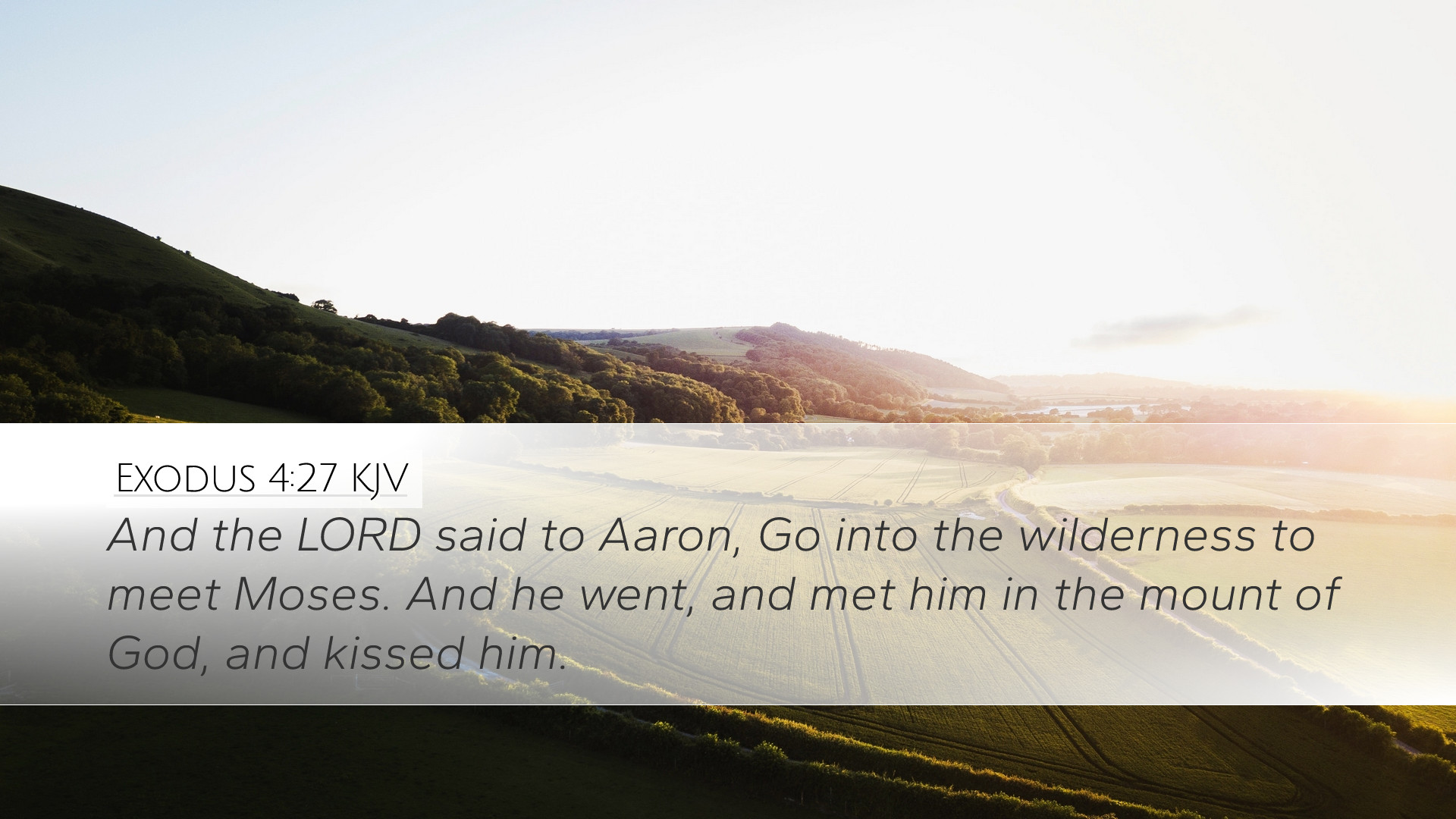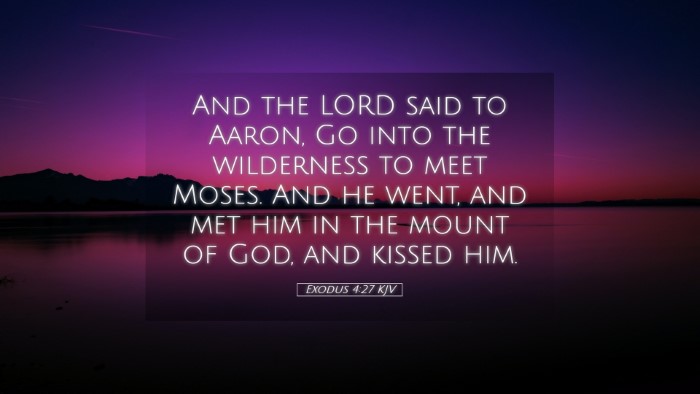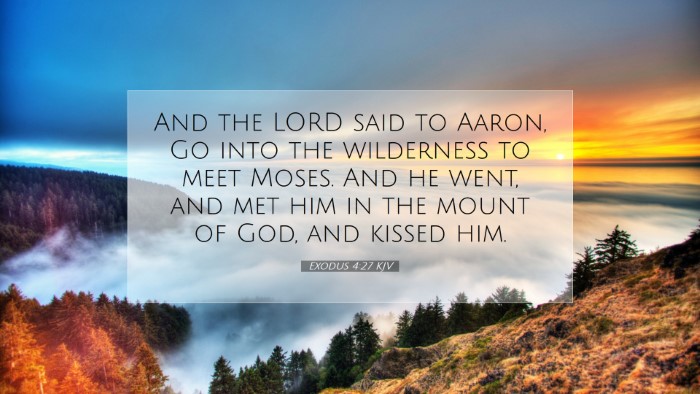Commentary on Exodus 4:27
Bible Verse: "And the Lord said to Aaron, Go into the wilderness to meet Moses. And he went, and met him in the mount of God, and kissed him." - Exodus 4:27 (KJV)
Introduction
Exodus 4:27 serves as a pivotal moment in the narrative of Moses' return to Egypt. This verse emphasizes
the divine direction given to Aaron, Moses' brother, to meet him in the wilderness. The encounter is laden
with significance, as it marks the beginning of the partnership between Moses and Aaron in leading the
Israelites out of bondage. The commentary from various public domain sources provides a rich tapestry of
insights that can benefit pastors, students, theologians, and Bible scholars in understanding the depths
of this exchange.
Divine Providence
Matthew Henry notes the importance of God's providential care in this moment. The instruction to Aaron
highlights God's sovereignty and foreknowledge. It is a reminder that God orchestrates events for His
purposes and utilizes human leaders to fulfill His plans. Henry emphasizes that the meeting in the
wilderness was not a haphazard occurrence but a divinely appointed moment.
The Role of Aaron
Albert Barnes elaborates on Aaron's role, suggesting that God chose Aaron to assist Moses because Moses
felt inadequate for the task ahead. Barnes emphasizes Aaron as a symbol of support in ministry, showing
that God often provides partners in His work. This partnership is pivotal, as it showcases the need for
collaboration in fulfilling God's commands.
Symbolism of the Wilderness
Adam Clarke provides insight into the wilderness setting. He notes that the wilderness is often a place
of encounter with God, representing a spiritual preparation that precedes significant ministry. This
setting symbolizes trial and preparation, where Moses receives affirmation and support as he embarks
on a monumental task. Clarke emphasizes that recognizing the significance of place is crucial in
biblical narratives.
Emotional Significance
The act of kissing, as mentioned in the verse, is rich in emotional significance. It illustrates the
bond between brothers who are reunited after years apart. Henry mentions that this act symbolizes brotherly
love and unity, important themes in the context of their shared mission. Such displays of affection serve
as reminders of the relational aspects of ministry, where collaboration is fueled by genuine love and
respect.
Theological Implications
The divine command for Aaron to “go into the wilderness” can be seen as a theological reflection on the
nature of divine calls. Barnes points out that the calling of leaders is often wrapped in relational
dynamics, emphasizing the importance of obedience to God's instructions. The implication is clear—each
individual’s response to God’s call is significant in the larger redemptive narrative.
Unity in Leadership
Furthermore, the collaboration between Moses and Aaron underscores the biblical principle of unity in
leadership. Clarke suggests that this unity is essential in facing challenges, particularly in the context
of leading a nation out of oppression. Their partnership serves as a model for contemporary ministry,
illustrating the strength found in community and partnership.
Application for Ministry
For modern-day pastors and theologians, Exodus 4:27 challenges believers to consider their own roles in
God's unfolding plan. The need for support and collaboration in ministry is as relevant today as it was
in the time of Moses and Aaron. Furthermore, recognizing the significance of placements in life, the
importance of emotional bonds in ministry, and the call to unity are crucial for effective service
to the Church and the community.
Conclusion
In summary, Exodus 4:27 encapsulates crucial themes of divine direction, support in ministry, the
importance of relational bonds, and theological implications of leadership. As pastors, students, and
scholars reflect on this verse, they are encouraged to glean insights that promote unity, collaboration,
and obedience in their own contexts. By examining the relationship between Moses and Aaron, readers
can find inspiration to foster partnerships that honor God's calling and further His purposes.


